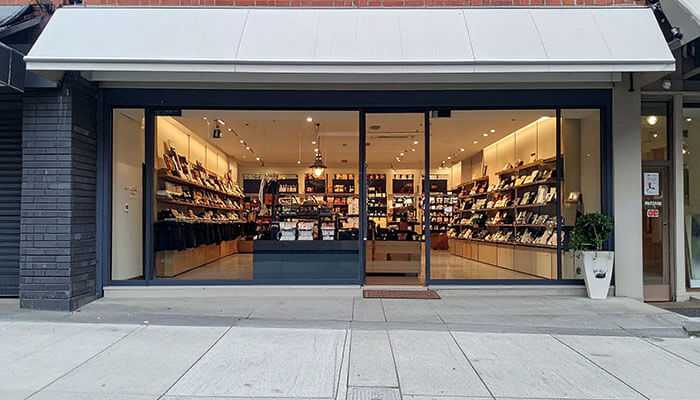Introduction:
The sharing economic system, driven by platforms like Airbnb, has appreciably modified how people view excursions and solid resorts in recent years, leading to a brand new stage of accessibility and choice for both hosts and guests. Thanks to Airbnb’s innovative business method, resort owners are now capable of completely making use of their properties and providing tourists with precise, customized lodging reviews that pass past traditional resort remains. However, the rapid development of this sharing environment has sparked important discussions about privacy and safety troubles, especially in light of the growing occurrence of indoor protection cameras in condominium homes.
Airbnb has taken an ambitious step with the aid of banning the use of internal protection cameras in properties that are listed, figuring out how critical it is to keep visitor privacy and ensure a secure and stable environment. This preventative motion highlights the platform’s steadfast dedication to setting its users’ consolation and well-being first, strengthening consensus and safety, which can be the foundation of the sharing financial system. We analyze vital records about the changing landscape of cutting-edge hospitality and the importance of maintaining stability among morality and technical improvements as we take a look at the motivations behind Airbnb’s widespread coverage exchange and its outcomes for hosts and visitors.
The Importance of Guest Privacy:
The assumption that visitors could sense stability and personality at some point in their lives in an apartment property is fashioned via privateness, which is a fundamental feature that defines hospitality enjoyment. It is essential to recognize that the installation of safety cameras may additionally unintentionally inspire worries about invasion and accelerated surveillance, even when it makes sense for hosts to pick out to do so for legitimate reasons like stopping robbery or harm.
The balance between protecting their assets’s safety and their guests’ privacy and comfort creates a satisfactory balance that hosts must cautiously manage. The acceptance and standard pleasure that guests have with their apartment experience can be damaged if they discover that they are being watched while they are there. This can cause feelings of discomfort and violation.
Airbnb’s Ban on Indoor Security Cameras:
Airbnb has proactively taken strict and complete steps to address the issue of indoor protection cameras inside apartment gadgets, understanding the importance of making certain visitors feel private and comfortable all through their lives. With its updated policy pointers, Airbnb without a doubt prohibits hosts from putting in place any form of surveillance gadget—including cameras and recording devices—inner of their leases. The coverage allows many fantastic exceptions, which include using outside security cameras on special occasions that make sense. By making sure that visitors’ protection and comfort are constantly covered, this contemporary technique allows to hold the fundamental privacy cost that bureaucracy, the basis of Airbnb enjoys.
Airbnb has strategically pushed for a ban on indoor safety cameras to align with its unwavering commitment to defensive visitors’ fundamental right to privacy while also maintaining a safe and welcoming environment. Airbnb’s goals are to foster a tradition of self-assurance and transparency among its host and visitor networks by establishing clean suggestions and boundaries. This will help to guarantee that every individual feels cherished and comfy during their life, at one of their resorts. These kinds of moves not most effectively give a boost to the relationship between hosts and visitors, but in addition, they help Airbnb maintain its reputation as a real, considerate platform that places everybody’s consolation and well-being first.
Implications for Hosts:
Since Airbnb has banned its use these days, hosts who have traditionally trusted indoor safety cameras to enhance their safety features ought to very well reevaluate their popular precautionary measures. The use of interior cameras is currently prohibited via the limit; however, hosts can still decorate the protection in their homes by investigating plenty of different security measures. The use of clever locks, the development of comprehensive alarm structures, and lively involvement in community watch programs are a few similar examples of those alternatives. Guests’ right to privacy can be respected while raising the security standards of their lodgings through hosts who undertake those new security measures.
With those changes in place, hosts can give attention to encouraging their visitors’ popularity as genuine and confident by way of maintaining clean and sincere verbal communications about the safety protocols in their location. Those who host can help create a more stable and comfortable environment for their guests with the aid of brazenly communicating the lifestyles and rationales of any outside security cameras. This proactive technique not only highlights the cost of traveler privateness but also the determination to ensure that each vacationer has a welcome and secure experience.
Finally, hosts can also create a solid basis of information that will help guests unwind and fully experience their stay with no concerns, with the aid of emphasizing protection and openness.
Benefits for Guests:

Because of Airbnb’s ban on internal security cameras, visitors at the moment are guaranteed a fear-free lifestyle wherein they can feel comfy, further enhanced by an enhanced experience of calm and confidence during the reservation technique. It greatly improves the overall visitor’s enjoyment to understand that their privacy is included and they will no longer be under surveillance or monitoring while staying at an Airbnb. It also helps to build a robust belief in the dependability and integrity of the Airbnb network.
Visitors can find comfort in knowing that they can enjoy their lodges without the traumatic experiences of being watched or feeling like their privacy is being violated, which in the long run allows them to fully loosen up and enjoy their ride. This steady dedication to guest privacy is a mirrored image of Airbnb’s unwavering dedication to maintaining stable, courteous, and secure housing standards for all travelers globally, consequently organizing the bar for excellence in community-driven hospitality.
Conclusion:
Airbnb’s latest flow to ban internal protection cameras in condo homes is an extensive step inside the right course in the direction of improving site visitors’ protection and well-being. The proactive move via Airbnb to provide specific hints and regulations on the usage of surveillance systems demonstrates the platform’s commitment to creating a truthful and strong environment for each host and guest.
This transformation will in the end have numerous blessings for all parties concerned, even though the ban could force hosts to reconsider their current security configurations. In addition to growing general leisure for both hosts and guests and highlighting the fee of privateness in the shared lodging area, the implementation of this sort of policy contributes to the improvement of surroundings of transparency, dependability, and admiration within the thriving Airbnb community. Forward-questioning, Airbnb is determined to hold its invincible commitment to defensive guest privateness while also supplying first-rate lodge options for vacationers from all over the world.
Source: Cosmo Politian











